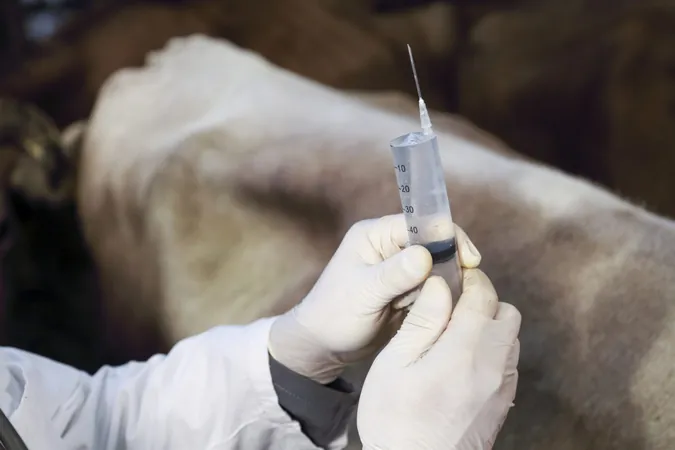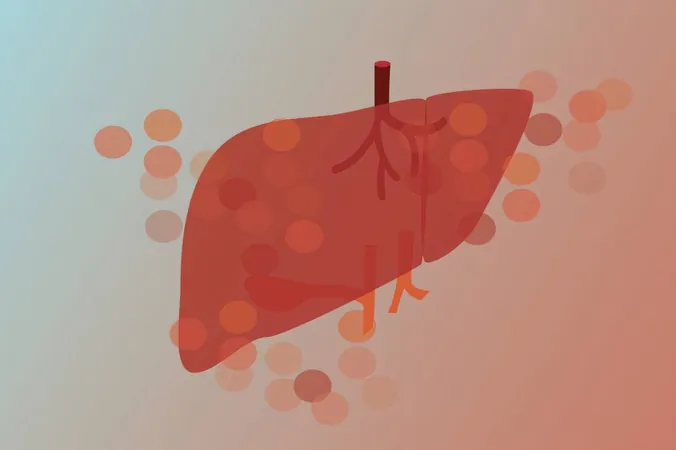
Experts on High Alert as B.C. Teen’s Avian Flu Case Linked to U.S. Fatality: Are We Facing a New Pandemic Risk?
2025-01-08
Author: Benjamin
Introduction
In a concerning development, health officials in British Columbia are closely examining the avian flu case of a local teenager, which has been linked to a recent fatality in Louisiana. The BC Centre for Disease Control (BCCDC) is investigating the genetic similarities between the two cases to understand the potential implications for human health.
Investigation Details
Dr. Agatha Jassem, a clinical microbiologist at BCCDC, explained that the research aims to uncover how the viruses from both patients relate to one another and to other avian viruses currently affecting birds. This vital information could reveal how easily the virus adapts and spreads among animals and humans.
Recent Fatalities
The tragic incident in Louisiana marked the first death from H5N1 avian influenza in the United States, with health officials reporting that a hospitalized patient succumbed to the illness. Meanwhile, the B.C. teen remains in stable condition at a Vancouver hospital, having recently transitioned out of intensive care.
Genetic Mutation Concerns
Dr. Jassem highlighted a shared genetic mutation between the U.S. and Canadian cases that infectious disease experts believe could indicate a greater potential for human transmission. Interestingly, the U.S. Centers for Disease Control and Prevention (CDC) indicated that this particular mutation wasn't found in the poultry samples from the Louisiana patient’s environment, suggesting it may have developed post-infection.
Ongoing Research
As of now, B.C. health officials are still puzzled over how the teenager contracted the virus. This uncertainty adds urgency to their research. Dr. Jassem emphasized the need to monitor mutations in the virus, stating, “It is critical to track how this mutation evolves during the course of an infection to gain insights into how the virus might adapt to humans.”
Genomic Analysis
The BCCDC is conducting a series of genomic analyses, examining samples taken at various intervals to assess how these mutations impact the virus's ability to replicate in human airways. Furthermore, Michelle Wille from the University of Melbourne's Centre for Pathogen Genomics warned that the emergence of similar mutations in multiple severe human cases underscores the need for enhanced genomic surveillance to track changes in these viruses.
Conclusion
As experts work on mapping the genetic features of these avian flu cases, the world is left to wonder: Could we be on the brink of a new public health crisis? Are we finally facing a disease that could jump from birds to humans with alarming frequency? Stay tuned as we bring you updates on this developing situation.









 Brasil (PT)
Brasil (PT)
 Canada (EN)
Canada (EN)
 Chile (ES)
Chile (ES)
 Česko (CS)
Česko (CS)
 대한민국 (KO)
대한민국 (KO)
 España (ES)
España (ES)
 France (FR)
France (FR)
 Hong Kong (EN)
Hong Kong (EN)
 Italia (IT)
Italia (IT)
 日本 (JA)
日本 (JA)
 Magyarország (HU)
Magyarország (HU)
 Norge (NO)
Norge (NO)
 Polska (PL)
Polska (PL)
 Schweiz (DE)
Schweiz (DE)
 Singapore (EN)
Singapore (EN)
 Sverige (SV)
Sverige (SV)
 Suomi (FI)
Suomi (FI)
 Türkiye (TR)
Türkiye (TR)
 الإمارات العربية المتحدة (AR)
الإمارات العربية المتحدة (AR)